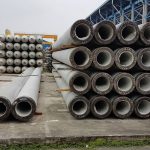Many exporters believe that as long as their cargo is in sturdy containers, transported by a stately ship, and safely routed, all shipping risks are mitigated. However, this belief is a dangerous myth that can have fatal consequences. Financial losses aren’t limited to spectacular disasters like shipwrecks or massive fires at sea. Often, exported goods are damaged or lost due to hidden, unconsidered risks. These dangers lurk at every stage.international logistics, from the warehouse inland to the port of destination. Without Marine Cargo Insurance, losses can be a nightmare that destroys profits, damages reputation, and threatens the survival of the business itself.
This article will explore 10 hidden disasters that often go unnoticed and show how marine cargo insurance is the only protection that can protect you. We will provide practical guidance and solutions, including the important role of insurance brokers like L&G Insurance Broker, to ensure that you no longer experience unexpected losses in freight insurance.
1. Damage Due to Container Sweat
One of the most common and difficult-to-detect risks is damage caused by container sweating. This phenomenon, also known as condensation, occurs when water vapor formed inside a container due to changes in temperature and humidity condenses, drips, and damages the cargo inside. Extreme temperature changes, such as when a ship sails from tropical to cold waters, are a major trigger. Export commodities such as coffee beans, tea, cocoa beans, spices, and textiles are particularly susceptible to this risk, which can lead to mold, mildew, or structural damage to the product.
How Insurance Protects: Police Marine Cargo Insurance with coverage “All Risks” (ICC A) specifically covers damage due to moisture and condensation. This is vital protection because this damage is often invisible from the outside of the container, but can cause a total loss of value to the cargo.Cargo insurance provides assurance that financial losses resulting from this “silent disaster” will be covered.
2. Partial Theft (Pilferage)
Theft is not always on a large scale. Often, thieves take only a small portion of the contents of a container or package, known as pilferage This can occur in warehouses, ports, or even during transit in less monitored areas. The perpetrators are usually unscrupulous individuals who exploit the situation while cargo is being unloaded or moved. These losses often go undetected until the cargo arrives at its destination and the container is opened, causing serious problems and mistrust with buyers who receive under-delivered goods.
How Insurance Protects: Marine cargo insurance with extensive coverage covering losses due to theft, whether partial or total. This ensures that exporters do not suffer financial losses due to such criminal acts, emphasizing the importance of having comprehensive freight insurance.
3. Cross Contamination
Shipping different commodities on the same ship, or even in adjacent containers, can lead to cross-contamination. For example, aroma-sensitive coffee beans can be contaminated with chemicals, spices, or other products with strong odors. This contamination damages the overall quality and marketability of the product, even if the product is physically undamaged.
How Insurance Protects: Marine Cargo Insurance can be adjusted to cover the risk of contamination. With the help of insurance brokers, exporters can obtain policies that specifically cover damage due to cross-contamination, maintaining the quality of their commodities and protecting the investments they have made.
4. General Average Disaster
This is one of the most dangerous and unpredictable hidden risks in shipping. If a ship experiences a serious incident (e.g., fire, engine failure, or grounding), the captain has the legal authority to take action to save the ship and its cargo. This action could include dumping some of the cargo overboard (jettison). In this case, all surviving cargo owners must share in the costs of the loss and salvage costs (General Average). These fees can be substantial and must be paid before the cargo is safely released.
How Insurance Protects: Marine cargo insurancedirectly bear the costsGeneral AverageThis means that exporters do not have to bear the burden of significant losses that are not caused by direct damage to their cargo. This protection is a crucial reason whyfreight insurance become a non-negotiable investment.
5. Damage Due to Load Shifting
Even if a container is properly secured, extreme ship movement due to storms, high waves, or sudden maneuvers can cause the cargo inside to shift significantly. This shifting can damage the container’s structure and destroy the cargo inside. This damage is often invisible from the outside and can only be detected after the container arrives and is opened.
How Insurance Protects: Cargo insurance protects against physical damage caused by load shifting. CoverageICC provides comprehensive protection against these risks, ensuring that losses due to shocks or shifts are covered.
6. Jettison Risk
Jettison is the act of throwing cargo into the sea to lighten the load of a ship in danger. Although the purpose is noble—saving the remaining cargo and the lives of the crew—this is a total loss for the owner of the discarded cargo. Without insurance, these losses will be fully borne by exporters, which could be a devastating blow and difficult to recover from.
How Insurance Protects: PoliceMarine Cargo Insurancandcovers losses due tojettisonThis is a financial safety net that ensures you don’t lose all your capital due to an incident beyond your control.
7. Unforeseen Delays
Delays at ports or en route due to technical issues, bureaucracy, or bad weather can damage perishable or limited-shelf-life commodities. While delays don’t cause physical damage, they can render cargo unsaleable, resulting in significant losses.
How Insurance Protects: Some police cargo insurance can be extended to include losses due to delay.Insurance brokers can help exporters get this additional coverage, ensuring they are protected from financial losses due to delays.
8. Damage Due to Pests or Rats
Pests such as rats or insects can enter containers and damage commodities during transit. This risk is particularly high for agricultural commodities like coffee, tea, and cocoa. Pests can physically damage the product or impair its quality.
How Insurance Protects: Policemarine cargo insuranceWith extensive coverage, it can cover losses caused by pests and rodents. This provides exporters with peace of mind that their products are safe from these biological threats.
9. Documentation Errors
Even if it’s not a physical disaster, a small error in shipping documents can be fatal. Errors in bills of lading or customs documents can result in cargo being detained, confiscated, or even returned to the port of origin. The resulting delays and costs can be substantial and often exceed the value of the cargo itself.
How Insurance Protects: Some police Marine Cargo Insurance can be extended to include risks related to document errors. This demonstrates the importance of consulting with an insurance broker, an expert, who can help review documents and make sure everything is complete.
10. Spontaneous Fire or Explosion
Some commodities have unique risks, such as a tendency to spontaneously combust due to internal chemical reactions, especially if improperly packaged. This is a hidden risk that can lead to total cargo loss.
How Insurance Protects: Freight insurance covers losses due to fire and explosion. With insurance, exporters do not have to bear these massive financial losses.
The Vital Role of Insurance Brokers and L&G Insurance Brokers
Identifying these 10 hidden disasters and choosing the right policy is no easy task. This is where insurance comes in and insurance brokers become very crucial. Insurance brokers act as an expert consultant who understands the ins and outs of the marketfreight insuranceand the specific needs of exporters.
L&G Insurance Broker is an example of an ideal partner. Their team of experts will:
- Conducting In-depth Risk Management Analysis: They not only sell policies, but also help you identify all the hidden risks your export commodities face, from the warehouse to the final destination.
- Designing a Customized Insurance Program: They will plan policy cargo insurance tailored, ensuring there are no gaps in your protection and you only pay for the coverage you need.
- Negotiating the Best Premium: With a wide network with various companiesinsurancetrusted, they will negotiate the best premiums and most favorable policy terms for you.
- Accompanying You at Every Stage of the Claim Process: If an incident occurs, they will be your partner. They help manage the claims process from start to finish, ensuring all paperwork is complete and your claim is processed quickly and fairly.
ProtectYour Business Before It’s Too Late
Any incident, no matter how small, can cause significant financial losses and threaten the continuity of your export business. Don’t let risks overwhelm you. Take proactive steps to safeguard your assets and reputation.
Get in touch L&G Insurance Broker now on 08118507773 for a free consultation before the risks haunt your business.
Conclusion
Disaster lurks within export logisticsis a real threat that can damage your business more than you imagine. Ignoring this risk is like gambling with your company’s future.Marine Cargo Insuranceis the only solution that can provide comprehensive protection.
By choosing strategic partners such asL&G Insurance Broker, exporters can navigate the complexitiesmarine cargo insuranceWith confidence. This is the smartest investment, ensuring no further losses and building a reputation as a reliable and professional exporter. Don’t let hidden risks undermine your hard work.
Source:
- https://ligaasuransi.com/hal-hal-yang-perlu-anda-ketahui-sebelum-membeli-asuransi-marine-cargo/
- https://rpx.co.id/blog/5-masalah-yang-biasa-dihadapi-selama-ekspor-impor-cara-mengatasi-id
—
DON’T WASTE YOUR TIME AND SECURE YOUR MINING FINANCIAL AND BUSINESS WITH THE RIGHT INSURANCE.
HOTLINE L&G 24 JAM: 0811-8507-773 (CALL – WHATSAPP – SMS)
Website: lngrisk.co.id
Email: halo@lngrisk.co.id
—



















